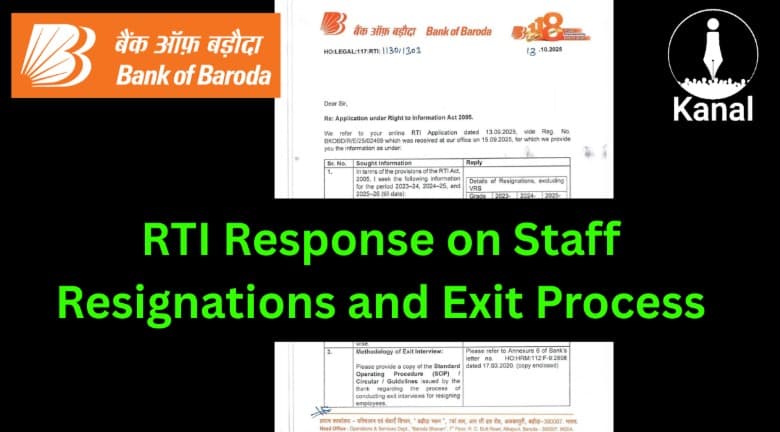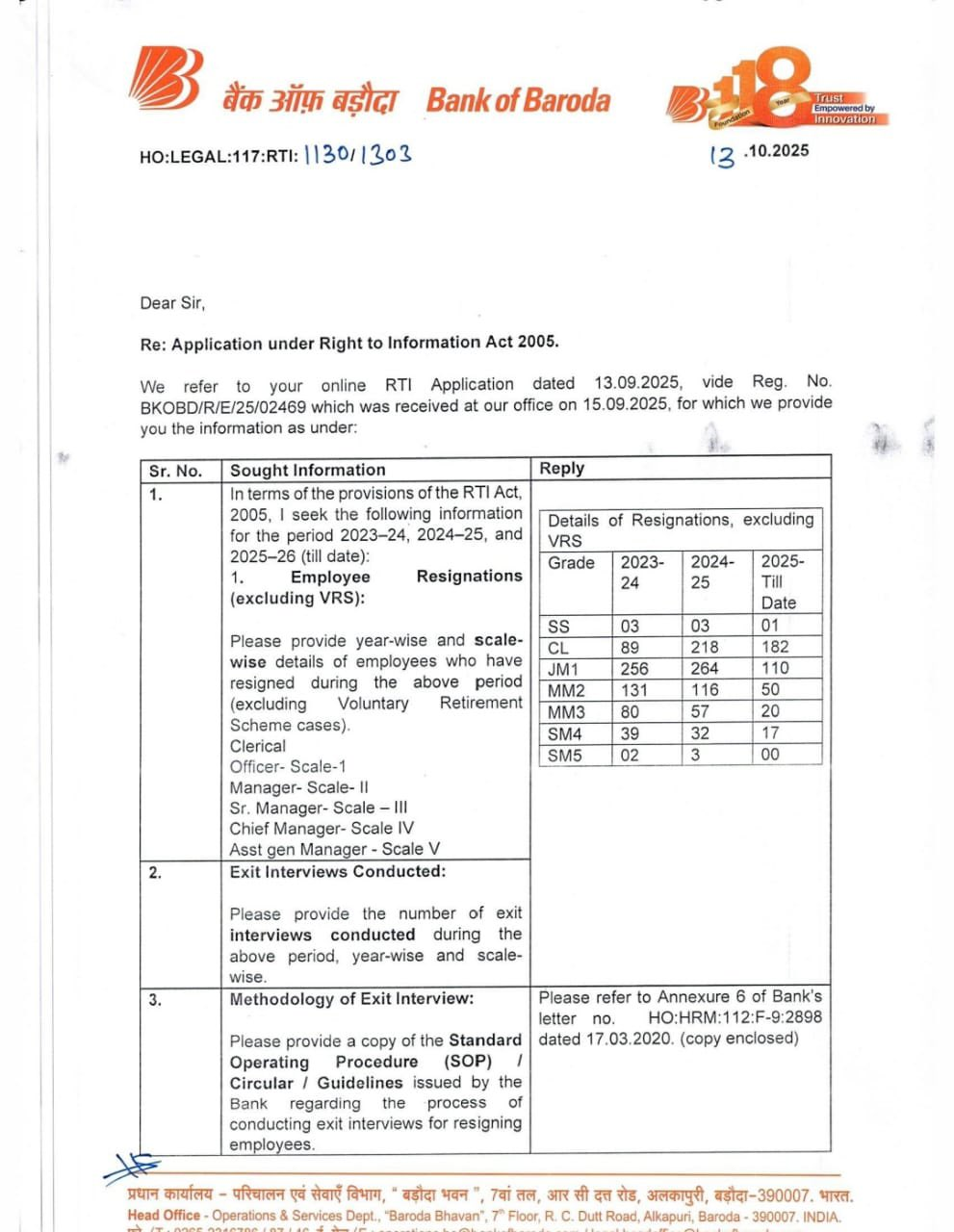Bank of Baroda RTI Reveals Employee Resignations and Exit Interview Process: AIBOBOU Responds
Bank of Baroda has replied to an RTI application regarding employee resignations and exit interviews. The information is provided for financial years 2023–24, 2024–25, and 2025–26. The bank has also mentioned the procedure followed for conducting exit interviews.

Author: V.Gayathri
Published: October 29, 2025
The RTI reply from Bank of Baroda (BoB) provides details of employee resignations, excluding voluntary retirement cases, for the years 2023–24, 2024–25, and 2025–26 (till date). The data includes year-wise and scale-wise information for clerical staff and officers from Scale I to Scale V.
The bank has also confirmed that exit interviews are conducted for resigning employees and referred to the Standard Operating Procedure issued in March 2020 for this purpose.
The RTI response presents an overview of the attrition pattern within the bank over the last three financial years. It provides an official account of employee exits and highlights the formal process followed for exit interviews, offering insight into the internal human resource framework and resignation trends.
Advertisement
Advertisement

Image: BoB’s RTI response detailing employee resignations and exit interview process
Union’s Perspective
Speaking to Kanal, K. Srinivasarao, General Secretary of the All India Bank of Baroda Officers’ Union (AIBOBOU), said that “Many officers have resigned in the past two and a half years due to the prevailing toxic culture and the management’s anti-employee attitude”
He stated that “The grievance redressal mechanism is very poor. As per DFS guidelines, there should be a two-tier redressal mechanism, but in BoB there is only one Samaadhaan portal, which gives funny answers rather than redressing employees’ problems.”
According to him, the main reason for large-scale resignations is the indifferent attitude of HR personnel. Though they are HR graduates, they have forgotten their basic role of acting as a liaison between employer and employees. He said they behave totally against employees, showing a brutal and cynical approach. They do not attend calls or acknowledge communications, frustrating employees to the point of resignation.
He further mentioned that “Transfers and promotions are informed over phone calls, and relieving orders are sent through WhatsApp. Despite guidelines against mid-academic transfers, officers continue to be transferred without proper approval, leading to victimisation of those who raise their voice.”
He also alleged that “Unnecessary pressure is being put on officers to sell insurance products for personal gains of executives. Coercion, threats of transfers, charge sheets, low appraisal marks, biased investigations, nepotism, and lack of transparency in promotions and transfers are common. He described it as “Manmaani Raj” of the management, along with the hand-in-glove attitude of the majority officers’ association, which he said is responsible for the exodus.”
The RTI response from Bank of Baroda offers factual data on employee resignations and outlines the standard procedure followed for conducting exit interviews. While the bank has provided official details through its RTI reply, the observations shared by the AIBOBOU reflect the employees’ perspective on internal challenges. The contrasting views highlight the importance of continuous dialogue between management and staff to ensure transparency and effective human resource practices.
No comments yet.
